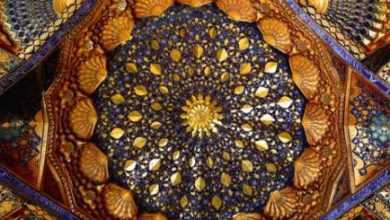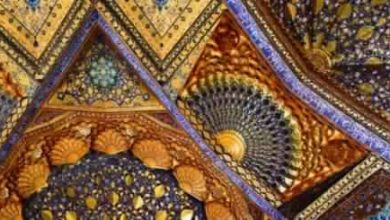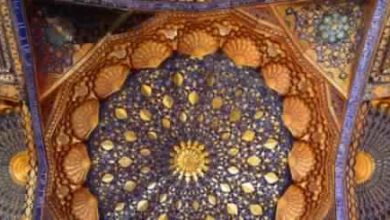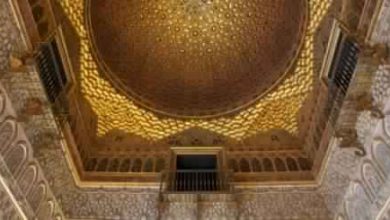EID UL FITR

The Muslim calendar is marked with two occasions of Eid – Eid ul Fitr and Eid Al Adha.
The Arabic word “Eid” signifies a day of happiness and joy. It is a day of spiritual celebration. What is the essence of this celebration? Many think it is the release from the various injunctions imposed on us when fasting, and therefore, it is a celebration to enjoy food and all the other previous physical prohibitions of the foregoing month. Some take this as a time for reunions, where family members far and wide travel back to their hometown to be with their parents or siblings. In some cultures, it is the period for reconciliation. Young and old alike also look forward to new clothes, and in some cultures, “open houses” are held, being an open invitation for people to drop by for a free flow of food, drink and socialising. In some other cultures, it is the time for exchanging presents and cash gifts.
However, the true essence of Eid is not supposed to be a celebration which is marked by material indulgence, but rather, a day where we thank Allah for all His bounties to us.
What is Eid ul Fitr?
Eid ul Fitr is a celebration that occurs on the first day of Shawal, to mark the end of a month of fasting in Ramadan.
The sighting of the crescent moon, signalling the beginning of the new month, is indeed a time of both joy and sadness. The sadness comes from the fact that another Ramadan is over too soon. The early Companions used to feel the end of Ramadan with the same pang that one is forced to depart from a loved one.
On the other hand, Eid ul Fitr is also a time to celebrate – not so much that the multiple prohibitions have now been lifted, but rather, that Allah has chosen this day to bestow gifts upon His fasting slaves. This is why Eid ul Fitr is also nicknamed Yaum al Jaa’izah, the Day of Gifts.
Eid ul Fitr officially starts on the eve before. Once the confirmation has been received that the crescent moon has been sighted in the locality, Terawih prayers no longer take place and the masjid instead resounds with the Takbir – a litany of praises and thanks to Allah, which continues throughout the night and into the day of Eid.
The Climax of Eid
The climax of Eid ul Fitr is the morning prayers. Like the Terawih prayers, it is not compulsory. However such is the importance of the Eid prayer that Prophet SAW, who usually did not impose an obligation for women to attend the masjid, encouraged his whole ummah, women included, to attend the congregational Eid prayers. This invitation is even extended to menstruating women (on the condition that they keep away from the actual prayer area), who although being unable to perform the salat, are still invited to partake in the abundance of goodness bestowed by Allah upon the Muslims on this day. This all-inclusive invitation to the masjid is to give everyone, man and woman, the opportunity to collectively invoke Allah and hope for the blessings of the day and purification of their sins.
The numerous rewards of the Eid ul Fitr prayer starts from the outbound journey to the masjid. The Prophet SAW used to eat dates before departing for the Eid ul Fitr prayer, in odd numbers. This is a sunnah that is very easily replicated.
As for the route to and from the masjid: Narrated Jabir bin Abdullah (RA) that “On the Day of Eid, the Prophet (SAW) used to return (after offering the Eid prayer) through a way different from that by which he went.” (Bukhari)
Many scholars believe that this is to maximise the opportunity for the journey to be recorded by as many angels as possible. It was stated in the early reports that “When the day of Eid comes, the angels of Allah take position at the corners of each street and declare, ‘O the Believers! Proceed to your Lord Who is very merciful, tells you about the good deeds, favours you with Tawfeeq to practice them and then award you with big rewards. He ordained you for Terawih and you did it, He ordained you to fast during the day time and you fasted, you followed the directives from your Lord, now come and pick up your gift.'”
When the Eid prayers are completed, the early reports also state that an angel would announce: “O the people! Your Lord has pardoned you, so returned to your homes with success. This is the reward of Eid Day and this day is known in the world of angels as the Day of Reward (Yaum al Jaa’izah).”
If only we understood the spiritual opportunities associated with the Eid prayer, we would not allow this amazing chance slip through our fingers!
Unity and Sharing
Eid is also the time to increase the unity between the Muslims and to experience the joy of being united with our brothers and sisters in Islam. Charity as well as zakat-ul-fitr (alms for Eid) generate a bond of mercy, compassion and empathy between each other. The cut-off time for the payment of zakat-ul-fitr is the start of the Eid prayers, so that when the prayers are over, all the poor and needy in the locality are amply provided for and are able to celebrate Eid with happiness and dignity.
There is another altogether different form of sharing – of the non-material kind. This is the sharing of the mercy and bounty that Allah has given to us. This is the time that He rewards us for a month of obedience, sacrifice and physical abstention, for the sacrifices of physical needs, desires and rest, for the ongoing vigilance of our tongues and limbs, and for our nights of worship in Terawih and Qiyam.
The Ultimate Reward
The Ramadan fast is an intensive process where the love of dunia is curbed, and even eradicated, where bad habits and addictions are kept in check and conquered. At the end of this physical and spiritual purification, we would ideally we have reached such a level of spiritual discipline and cleansing that we are better able to accord a higher priority to the love of Allah. This culminates, for the lucky few, in gaining hidayah or guidance from Allah, and to glorify Allah for His guidance upon completion of the fast.
Another early report states that “When Lailatul Qadr occurs a multitude of angels descend and pray for the maghfirah [pardon] for every individual who remembers Allah while sitting or standing. When the Day of Eid starts Allah asks His angels, ‘What should be the reward of the person who perfected his work?’ The angels respond, ‘O my Lord! It would be to compensate him befittingly.’ Allah says, ‘O my Angels! My bonded men and women fulfilled their obligation. Then they came out to the musalla [the open place for congregational prayers on Eid day], calling me throughout the way, I swear by My Honor, Dignity and Magnanimity, I will accept their prayers.’ Then Allah declares, ‘You, my bondsmen return [to your homes] I have pardoned your sins and transform them with good deeds.‘”
This is the ultimate treasure, for with Allah’s forgiveness, our final resting place in Paradise becomes that much closer to us, inshaa Allah.




